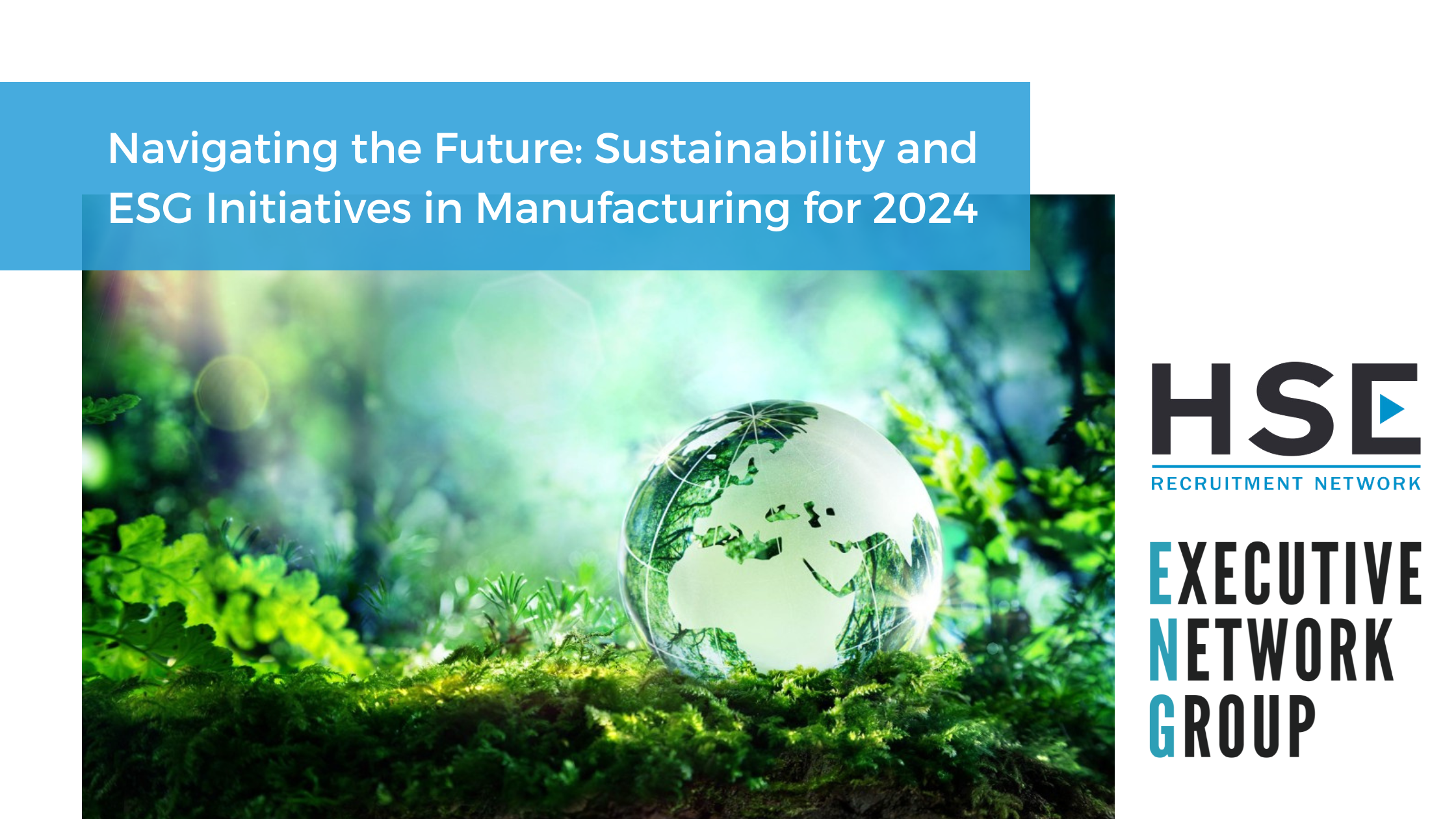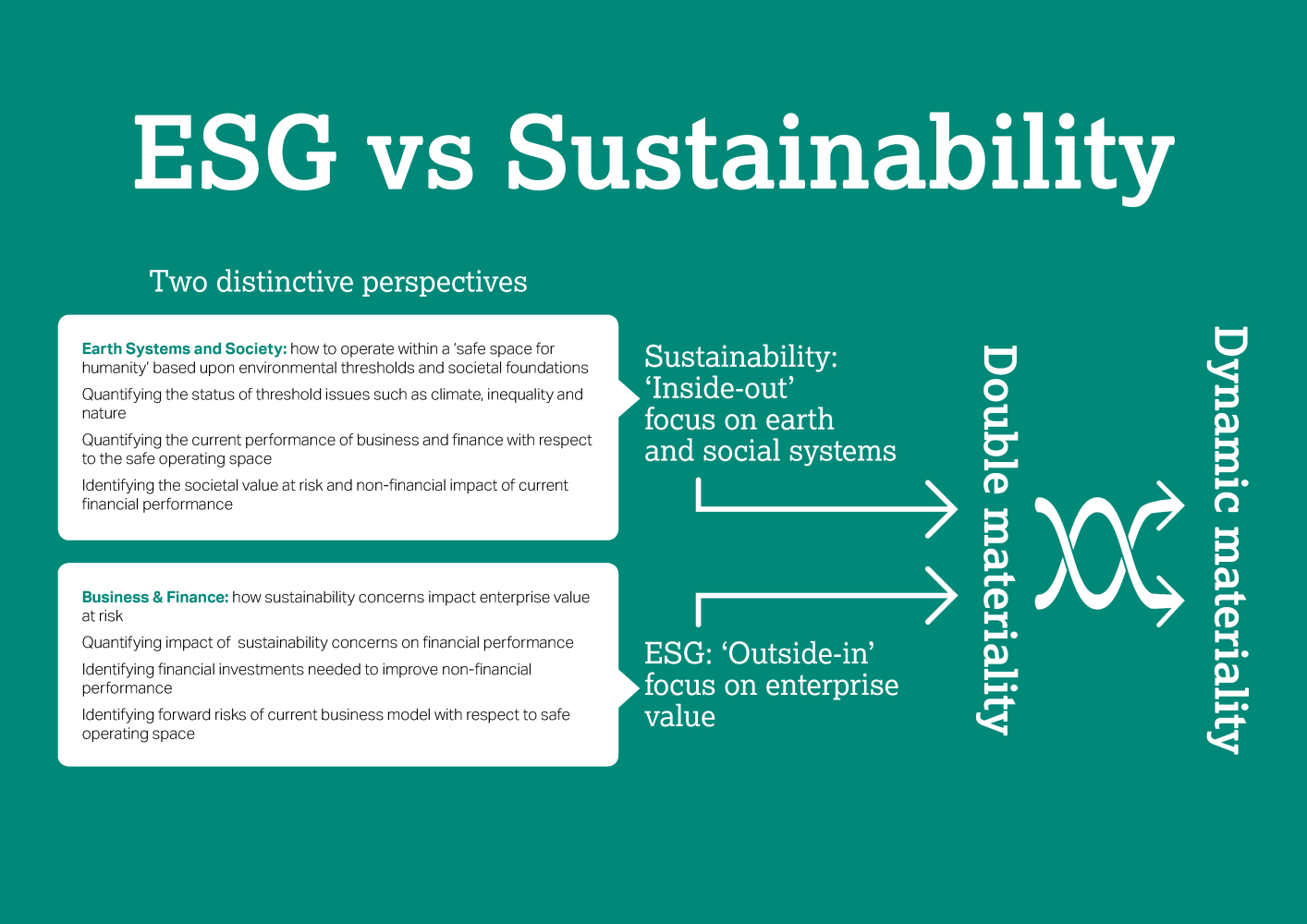Navigating the Future: Sustainability and ESG Initiatives in Manufacturing for 2024

In the dynamic landscape of the manufacturing sector, sustainability and Environmental, Social, and Governance (ESG) considerations have become integral components of strategic decision-making. As 2024 unfolds, the manufacturing industry is experiencing a shift, with companies recognising the need to align their practices with sustainability goals and ESG principles. This brief article explores my take on the evolving trends, challenges, and opportunities within the manufacturing sector as it embraces sustainability and ESG initiatives in 2024.
Embedding Sustainability in Core Business Strategies:
In 2024, sustainability is no longer a peripheral concern; it is deeply embedded in the core strategies of manufacturing companies. From product design and supply chain management to energy consumption and waste reduction, manufacturers are reimagining their processes to minimise environmental impact. This shift is not merely driven by compliance but by a genuine commitment to responsible corporate citizenship.
ESG Integration for Long-Term Value Creation:
The integration of ESG factors into business operations has emerged as a key driver for long-term value creation in the manufacturing sector. Investors are increasingly recognising the significance of companies that prioritize ESG considerations, understanding that sustainable practices contribute to resilience, risk mitigation, and enhanced financial performance. Manufacturers are responding by aligning their ESG goals with broader business objectives, fostering a culture of responsibility that extends beyond profit margins.

Renewable Energy Adoption and Carbon Neutrality:
Manufacturing processes historically have been associated with high energy consumption and carbon emissions. However, in 2024, manufacturers are actively seeking to reduce their carbon footprint by transitioning to renewable energy sources. Solar and wind energy, coupled with energy-efficient technologies, are becoming staples in manufacturing facilities, paving the way for carbon-neutral production processes and contributing to global efforts to combat climate change.
Supply Chain Resilience and Transparency:
The resilience of supply chains has taken centre stage in the wake of global disruptions. Manufacturers are re-evaluating and restructuring their supply chains to enhance resilience and reduce vulnerability to external shocks. Furthermore, there is a growing emphasis on supply chain transparency, with companies leveraging technology to trace the environmental and social impact of their supply chains. This commitment to transparency is not only an ESG imperative but also a response to the increasing demand from consumers for ethically sourced and sustainably produced goods.
Workforce Well-being and Diversity:
ESG considerations extend beyond environmental concerns to encompass social factors, including workforce well-being and diversity. In 2024, manufacturers are prioritising the health and safety of their employees, fostering inclusive workplaces, and addressing diversity and equality challenges within their organizations. Companies that recognize the value of a diverse and empowered workforce are better positioned to navigate the complexities of the modern manufacturing landscape.
As the manufacturing sector strides into 2024, the journey towards sustainability and ESG integration is both a challenge and an opportunity. Companies that embrace these principles are not only aligning with global expectations but are also future-proofing their operations. By fostering an all-inclusive approach to sustainability that encompasses environmental responsibility, social inclusivity, and robust governance practices, manufacturers can build resilience, inspire investor confidence, and contribute to a more sustainable and equitable world.
I would love to hear your thoughts and comments on the above, as well as any ideas for future articles to come.
Ryan Evans - The HSE Recruitment Network

.png)